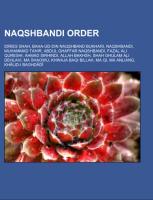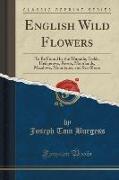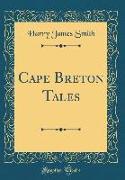Naqshbandi order
BücherAngebote / Angebote:
Source: Wikipedia. Pages: 72. Chapters: Idries Shah, Baha-ud-Din Naqshband Bukhari, Naqshbandi, Muhammad Tahir, Abdul Ghaffar Naqshbandi, Fazal Ali Qureshi, Ahmad Sirhindi, Allah Bakhsh, Shah Ghulam Ali Dehlavi, Ma Shaowu, Khwaja Baqi Billah, Ma Qi, Ma Anliang, Khâlid-i Baghdâdî, Naqshbandi Tahiri Golden Chain, Muhammad Sirajuddin Naqshbandi, Haji Dost Muhammad Qandhari, Omar Ali-Shah, Ma Hualong, Ma Laichi, Abdullah Shah Naqshbandi, Sayyid Ahmed Amiruddin, Muhammad Usman Damani, Ma Mingxin, Faiz-ul-Aqtab Siddiqi, Sayyad Laal Shah Hamdani, Ma Lin, Abdul Wahab Siddiqi, List of Khulafa of Pir Fazal Ali Qureshi, Ma Yuanzhang, Malaye Jaziri, Arif Ali-Shah, Allama Muhammad Idrees Dahiri, Abdullah Fa'izi ad-Daghestani, Nisbat-e-Rasooli, Naqshbandi Golden Chain, Ma Zhan'ao, Pir Nazeer Ahmed, Ma Haiyan, Sheikh Mustafa Ruhi Efendi, Ahmet Kayhan Dede, Allah Hoo, Khalid Hasan Shah, Ma Qianling, The Teachers of Gurdjieff, Ma Yonglin, Ma Guoliang, Ma Shenglin, Khwajagan, Qasimiya, Naqshbandi Haqqani Sufi Order, Abdul Khaliq Gajadwani, Peer Zulfiqar Ahmad, Ameer Abulula, Qasmi, Ma Dahan, Aq Tagh, Mohammed Amin Kuftaro, Khalidiyya, Maharvi, Khwaja Abu Nasr Parsa, Khwaja Abu Nasr Parsa shrine, Maulana Shah Jamali, Naqshbandia Mujadadia Aminia. Excerpt: Idries Shah (16 June, 1924 - 23 November, 1996) (Persian: ), also known as Idris Shah, né Sayed Idries el-Hashimi (Arabic: ¿¿¿ ¿¿¿¿¿ ¿¿¿¿¿), was an author and teacher in the Sufi tradition who wrote over three dozen critically acclaimed books on topics ranging from psychology and spirituality to travelogues and culture studies. Born in India, the descendant of a family of Afghan nobles, Shah grew up mainly in England. His early writings centred on magic and witchcraft. In 1960 he established a publishing house, Octagon Press, producing translations of Sufi classics as well as titles of his own. His most seminal work was The Sufis, which appeared in 1964 and was well received internationally. In 1965, Shah founded the Institute for Cultural Research, a London-based educational charity devoted to the study of human behaviour and culture. A similar organisation, the Institute for the Study of Human Knowledge (ISHK), exists in the United States, under the directorship of Stanford University psychology professor Robert Ornstein, whom Shah appointed as his deputy in the U.S. In his writings, Shah presented Sufism as a universal form of wisdom that predated Islam. Emphasizing that Sufism was not static but always adapted itself to the current time, place and people, he framed his teaching in Western psychological terms. Shah made extensive use of traditional teaching stories and parables, texts that contained multiple layers of meaning designed to trigger insight and self-reflection in the reader. He is perhaps best known for his collections of humorous Mulla Nasrudin stories. Shah was at times criticised by orientalists who questioned his credentials and background. His role in the controversy surrounding a new translation of the Rubaiyat of Omar Khayyam, published by his friend Robert Graves and his older brother Omar Ali-Shah, came in for particular scrutiny. However, he also had many notable defenders, chief among them the novelist Doris Lessing. Shah came to be recogn
Folgt in ca. 5 Arbeitstagen




